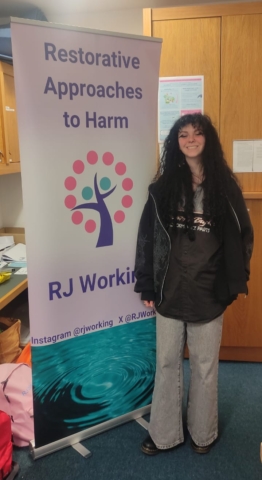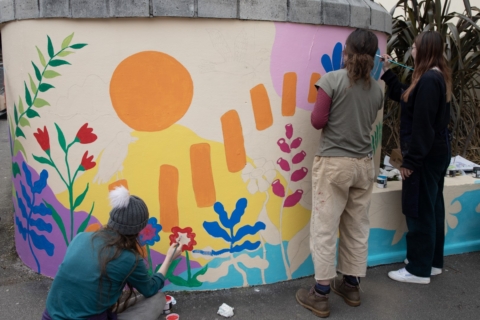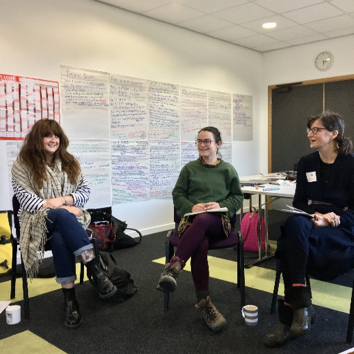Stories
Emma’s Story
My Favourite Part of Restorative Practice? It’s Not Rocket Science.
It goes without saying that relationships are at the heart of culture.
Or does it?
In Teaching, we often talk about relationships as being the foundation of positive classroom culture. Similarly in healthcare, the move towards ‘patient-centred care’ over the last two decades has prompted a significant change in how healthcare professionals think about patient experience. Worldwide, awareness that relationships are central to mental health circulates on social media, among managers, and throughout academic literature.
Yet despite this shared appreciation, there exists something of a gap between recognising the importance of healthy relationships and ensuring that we are adequately equipped to manage them.
And in some ways, thinking about relationships as something we have to manage and curate as adults is baffling. We know how to have relationships. That said, we are living in a time of tremendous social change and perceptions of increasing polarisation between social groups. We are also far from addressing the structural inequities that perpetuate racism, sexism, homophobia, ableism, and other identity-related harms. Even a cursory glance at the headlines is telling: we may know how to form relationships, but do we know how to navigate them when things get hard?
The Simplicity of Restorative Practice
One well-known adage within the Restorative world is that conflict in human relationships is inevitable, and that it’s what we do in the wake of conflict that really matters. So how do we do it? Well, in a nutshell being Restorative means making things better. And the good news is that we all have some sense of how to do this for our relationships. It involves listening (like, really listening), being kind, being honest about our feelings and taking responsibility for our actions. Simple right?! Not easy, but simple enough.
Having spent almost all my adult life in some kind of formal education spanning Psychology, Education and Restorative Practice, I have implemented numerous initiatives with the general aim of making things better for others. Many of these have involved complex theorising, rigorous planning and a healthy amount of data analysis. And though I do love these ways of working, there’s one thing I can’t stop thinking about. That despite all the fancy theory and seemingly endless complexities of the work, at the heart of it all the best thing about Restorative Practice is that it’s simple. It is kindness and compassion and a belief that we really can make things better. After all, it’s not rocket science.
For teachers and school staff at any stage in their Restorative Practice journey, please get in touch with emma@rjworking.co.uk to discuss how we can support you.



